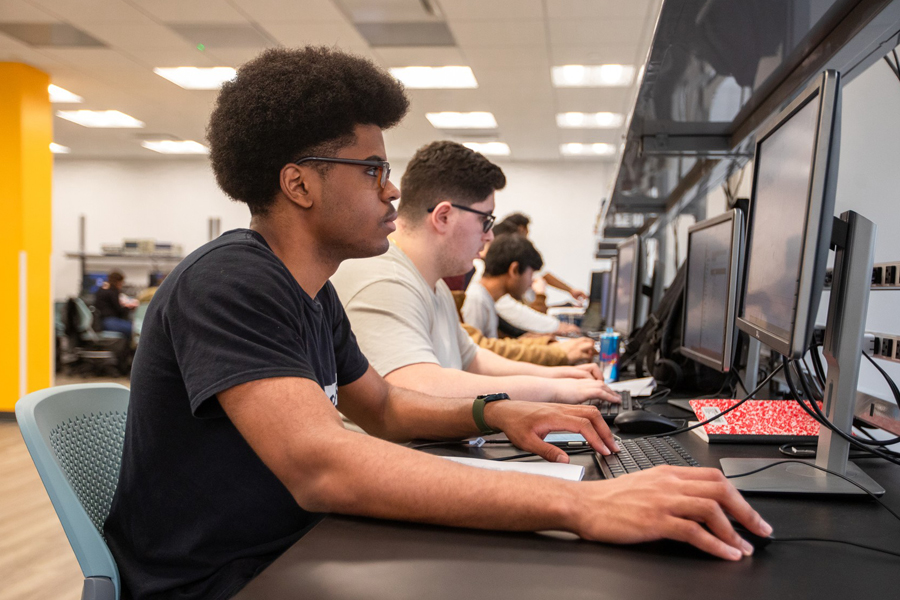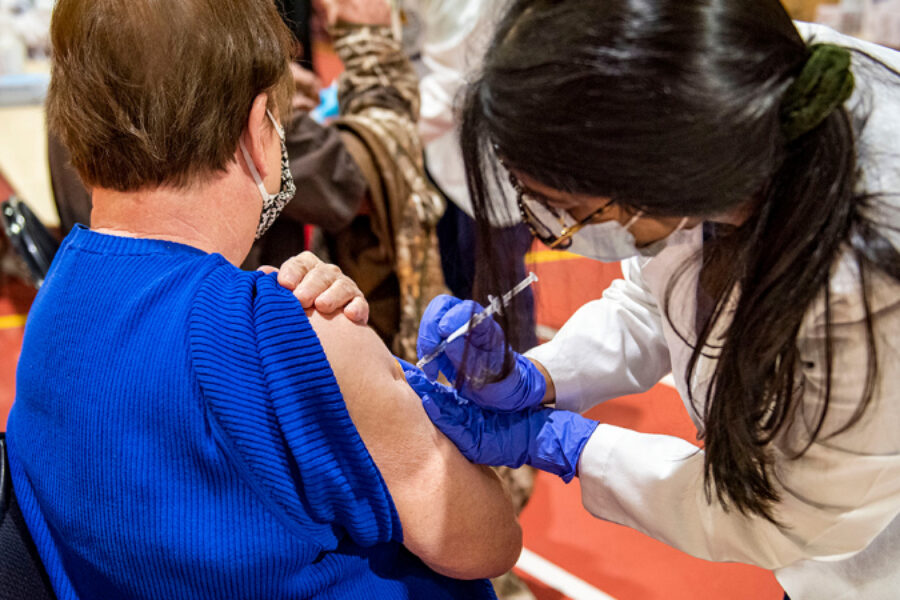AI Minor Debuts
New York Tech is now offering a minor in artificial intelligence (AI). Starting next semester, the new minor is open to all undergraduate students preparing to transition into any number of careers. As AI becomes increasingly essential in a wide variety of fields and industry sectors, this minor is designed to equip students with foundational knowledge and practical skills that complement their major disciplines.

The new AI minor will be offered in spring 2025.
This new minor underscores the university’s commitment to producing graduates who are well-versed in the latest technological trends while also being conscious of the societal impact of their work. Further, it emphasizes interdisciplinary learning by integrating courses from business, health sciences, architecture, and the humanities. This approach will create a unique intersection of AI and major-specific knowledge and draws faculty experts from across the university to teach.
“This minor fits into New York Tech’s broader institutional focus on innovation and practical application of technology. It complements other technical and applied science programs, particularly those that emphasize data analytics, machine learning, and business intelligence, and will be helpful in preparing students for diverse roles in a variety of technology, healthcare, business, and creative industries,” says Babak D. Beheshti, Ph.D., dean of the College of Engineering and Computing Sciences, who has overseen the development of the new minor.
Globally, enterprises are leveraging AI to enhance operations and decision-making. McKinsey & Company suggests that by 2030, 70 percent of companies will have adopted at least one form of AI technology, creating vast opportunities for professionals with related expertise.
The new minor focuses on both technical and applied aspects of AI. It is designed to equip students with a broad range of skills that enhance their career opportunities across multiple industries. Students will gain a deep understanding of AI algorithms, programming, and data handling techniques. At the same time, the minor emphasizes the ability to analyze and critique AI systems and algorithms for effectiveness, bias, and fairness. Other course offerings will prepare students to apply AI techniques to real-world problems.
Students will gain hands-on experience with tools and techniques that are integral to strategic business operations and key to employability in sectors like finance, logistics, and healthcare. Further, coursework will encourage interdisciplinary collaboration, teaching students to work effectively in diverse teams. The ability to communicate complex AI concepts to nontechnical audiences will be developed through projects and presentations, and all students who complete the minor will have a clear understanding of the ethical considerations surrounding AI development and deployment.
The Bigger Picture
“Our institution has been addressing the rise of AI by exploring opportunities and planning initiatives across multiple perspectives. For example, the Academic Senate is managing the proactive integration of AI into the classrooms and curriculum. Leadership has established committees to explore innovative ways this technology can enhance school operations and student experiences, and our internal funding programs are expanding in scope to pioneer new frontiers in research in this field,” says Provost and Executive Vice President Jerry Balentine, D.O.
Taskforces that have been working throughout the year are addressing areas including academic integrity, AI in the classroom, operations, curriculum, research, policy, the student perspective, potential applications of generative AI in medical education, and more.
More News

Physician Responds to CDC Vaccine Schedule Changes
Family medicine physician Shane Speights, D.O., site dean for NYITCOM-Arkansas, weighs in on the new recommendations.

New York Tech Awarded $2.5 Million to Advance Civil Discourse on Campuses
New York Tech has received the U.S. Department of Education Fund for the Improvement of Postsecondary Education Special Projects Program Grant, which will support efforts to drive student success through building civil discourse across the university’s campuses.

Community Building
Working on the Institute for Public Architecture’s Modeling Community Visions for a Future Without the BQE project, Marcus Wilford (B. Arch. ’16) turned to his alma mater for support.

Intern Insight: Khushi Vasoya
Fashion and jewelry enthusiast Khushi Vasoya bridged that passion with her studies in business administration and finance while interning with LabGrown Box.

Winter Weather Safety 101
Shane Speights, D.O., site dean at NYITCOM-Arkansas, shares tips to stay warm, dry, and safe during the cold months.

Intern Insight: Hardik Hardik
As a business technology intern, M.B.A. student Hardik Hardik worked closely with mass transit and security equipment manufacturer Boyce Technologies’ production and quality teams to support daily manufacturing operations.